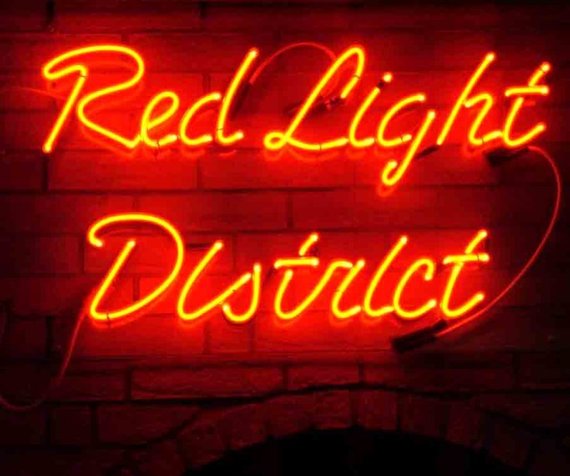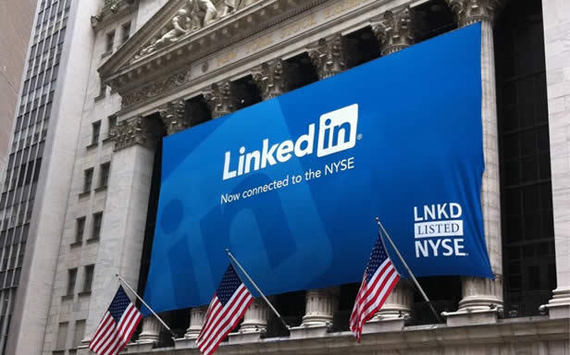The oldest profession in the world seems to be getting a corner office in the most prestigious site for professionals.
According to Sumerian records, the first exchange of money for sex dates back to 2400 BC. Greeks enjoyed both male and female prostitutes and date the interaction back to 594 BC where brothels were legal in Ancient Greece.
LinkedIn is under immense pressure to clean up its act when it comes to prostitution on its site. There is a great deal of evidence that it has become a hosting agent for illegal and illicit cyber pimping because of its lucrative client list which provides a cyber brothel for those who enjoy such pleasures or make a profit from it.
As represented in the source section of this article, LinkedIn seemingly has done "everything" to stop this activity... but not in reality. As wrote this article, I had no difficulty locating many people who work one way or another as a sex hosting agent or bridge to provide such service. However, they don't call their business "prostitute for hire here" on their page.
As a single female user of LinkedIn, I can simply ignore such issues and mind my own life because I am not worried that my "other half" is hooked on such services for extra decompression. The reason for my objection is my passion to do right for young women and girls.
I have long been annoyed with LinkedIn ignoring its social responsibility to stop this "business" and turning their eyes away while blocking me for reporting to their non-existent customer service that there are a large number of prostitutes on their site. It seems I have been punished for doing what Law Enforcement considers being a Good Samaritan.
Since being unblocked, I have been collecting information on such "businesses" and find it easy to locate, not one or two, but dozens under different headings. While LinkedIn claims to have cleaned up their house, I find the same business operating just fine under a different title.
If one person, who is not looking for such businesses, can locate them so easily with a few keystrokes, it shows clearly it doesn't take a genius to find such a business.
I have never had any trouble locating these people since I started complaining to LinkedIn a year ago but LinkedIn always maintains they are relying on the good of their members to do the job for them. You wonder why?
Is it so hard for a company whose stock is approximately $200 per share to hire a few hundred savvy computer specialists to keep it free from cyber prostitution links?
While LinkedIn says its site is completely clean I would be happy to share real examples that it is not. You should send a copy of this article to your congressman and ask them how is it possible that police can't get enough help to fight this business on the streets but a US based company has no problem in becoming their host without any responsibility whatsoever?
It is naive to think the oldest industry in the world, which has survived since the early history of human civilization, has any problem adapting itself to new technology. After all, if hackers can do it, so can this industry.
In our day and age, many countries legally profit from this oldest profession and some LinkedIn users are expressing their displeasure at my action, saying prostitution is a business and this is a business site. It is true, prostitution is legal in many countries, including or northern neighbor Canada. As a Canadian, I am well aware of the issues of sex labor and prostitution and angered that sex is the reason many visit Canada. I had a small run in with the profession in my life back in Canada as described in my book under the chapter Cultural Heritage Adjustment.
It is my opinion that the heart of the sex industry is not about a poor young woman with kids to feed and no husband to put food on the table or a roof over her child's head.
It is about people who use their body as a product to meet the demands of a customer. I met the DC Madam in the green room of Fox News on the night I was on their show talking about the punishment of a Saudi rape victim.
I met her and her "lawyer," an experience I hope never to repeat. When I met her, I knew who she was but pretended to not know because I did not want her to feel she was being interrogated. I started by commiserating that she must have been lured to such a business. She interrupted, and said, "What are you talking about? I grew up a Christian girl in a great family. I chose this profession because like it." I tried to swallow my shock and asked her if she could explain how she conducted her business. She explained like a business woman. She hired only college students who kept themselves healthy and clean. Most of her clients were high profile members of the US or other governments or business executives who wanted to enjoy themselves when in town. She paid the girls 25 percent. Apparently, one of the Canadian girls was not happy with the arrangement and reported her to authorities.
I understand one thing from my travels to and from Canada and in lecturing to England's House of Commons, that there are men who like to be connected with beautiful women, find it easy to use cyber space to do so and this site is a magnet for such pleasures.
In the past, sex dealers or pimps used to make such meetings possible between the merchandise and the customer in a house/ brothel or hotel room. These people were and still are the parasites that keep adapting themselves to new hosts. One such host is LinkedIn.
My interest in this article is to make sure LinkedIn CEO understands that just as one cannot fake resume information, faking information to the public should have the same consequences.
It is important for me to keep my reputation as a single women clean. I have been approached by both male and female members of this "industry" to be part of their network which I rejected immediately. After glancing at their pages, I noticed many of the male members of my network are linked with great interest and pride to such members.
On one occasion, when I removed male members who were connected to a prostitute called Candy, one of the men on her network attacked me publicly, asking why I removed him and called on others to attack me. Even though I never name names, he attacked me on my own page. LinkedIn of course does nothing to protect someone like me but goes to great lengths to shut down my page instead.
My last but not least concern; as a Shi'a Islam scholar and Iranian woman, it offends me highly when a network of professionals is subjected to lewd pictures and conduct. As a Muslim, my religion forbids any connection between me and a network of such profession, even if it is a true third party! You would be surprised to know many of the connections to these women are also from Arabic countries and so happen to be Muslims.
It is also important to note, a large number of high-ranking US officers are freely linked to such women who can be useful for more than just "entertainment." It is no secret they can also be used to gather intelligence and pass it to adversarial sources.
Maybe I am a bit too strict on my morality rules but I think where you find prostitution you can also find drugs. All of this is a mountain of evidence for an investigation by the US Congress as to why a US based company fakes fighting something that benefits no one except those who make money out of it.
What LinkedIn has done is akin to going to a restaurant for food, except you have to make your food and clean up the kitchen. They are asking us, the customers, to police the site while the LinkedIn stock rises and profits the CEO.
What is missing is, no one asked LinkedIn members what we think would work and how to stop it.
I am sure many of you who read this article have your own views and I welcome your suggestions as I am going to forward a copy of this article to members of Congress and my connections. Here are my suggestions:
- Use and adapt face and body recognition software, which will block if someone uses a celebrity photo, a minor photo, a naked image or anything the software is designed to stop.


